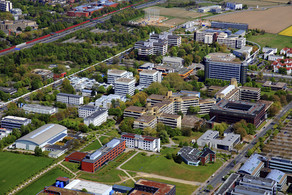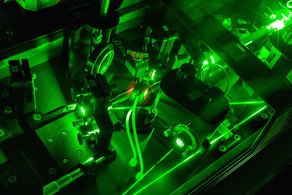Just save the world for a moment...
- TU News
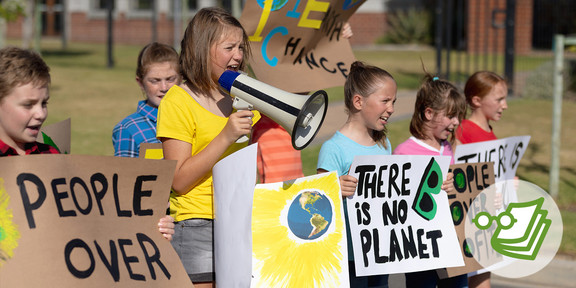
The topic of "sustainable development" is trending - and has long since entered the realm of education. Religious education in particular seems predestined to introduce children and young people to the UN goals for a fairer and healthier world. But Claudia Gärtner, Professor of Practical Theology at the Technical University of Dortmund, warns that it is not enough to educate young people to become little eco-experts, and pleads for a political pedagogy of religion.
Anyone growing up in the 1980s could not necessarily assume that the world into which he or she was born would still exist 40 years later. Acid rain, poisoned rivers, dying forests, nuclear death: there was no shortage of disaster scenarios with which young people were confronted in the media, at school and in society. In the face of hopelessness, some took refuge in fatalism: "I can't do anything anyway, after me the deluge! So far, that has not happened, and the world continues to turn. For the time being.
Today, it is the young people themselves who are taking to the streets for a better future - or rather, fighting to have a future at all. The historically unprecedented "Fridays for Future" (FFF) movement is mobilizing young people around the world - and inspiring Prof. Claudia Gärtner as well. "It's impressive what a strong role young people are suddenly playing in this debate," finds the theologian, whose new book, "Climate, Corona and Christianity," is influenced by the FFF movement. Her topic: the importance and task of religious education in times of crisis.
Giving young people space for their topics
(Factual) knowledge about climate change is taught in the subjects of biology, geography, physics or chemistry: Students learn about the global impact of natural disasters, how the natural basis of life is shrinking, how life in the oceans is changing, and what energy sources have what impact on the environment and resources. Important to the pedagogy is always the transfer to the everyday life of the students: What can they do themselves to behave in a climate- and environmentally friendly way? Even in kindergarten and elementary school, children learn to separate garbage properly, not to waste water, or to turn off the lights.
In religious education, the approach of "environmental education," which emerged in the 1970s with the eco-movement, has always found great openness. It connected seamlessly with the themes and goals of religious education. "The theological derivation is in the care of creation. How do we want to live well in the world? This question is deeply inscribed in religion," says Prof. Claudia Gärtner. Today, as young people demand these issues themselves, Gärtner sees religious education as having even more of a duty: "We have to give young people spaces to be heard with their concerns."

From the perspective of religious education, this is a great opportunity to reach children and young people. "Religion can provide answers to the question of why it is still worth going to religious education classes, or even to school, despite a seemingly uncertain future. We have the grand narrative that human beings are part of the world, not its ruler, and that together we must and can live well in the world. Connected to the world - that's the Christian message." Instead of confronting adolescents with negative consequences as in the past, religion works with visions, with a perspective of hope, and can show what a good life can look like, Gärtner said. "Religions are still important players in society. If this community can get people to develop a more environmentally conscious view of the world, those are big levers for overcoming the crisis."
From crisis to crisis
But how can religious education succeed in this? Doesn't it take advantage of the current social attention that issues of sustainability currently have among young people and try to reinterpret them in religious terms? "Climate, Corona and Christianity" - what do these three terms from the title of Prof. Claudia Gärtner's new book have to do with each other at all?
The subtitle gives an inkling of where the intellectual journey is headed: "Religious Education for Sustainable Development in a Wounded World." Crises such as the Corona pandemic and climate change, and ultimately also the massive refugee movements of recent years, are phenomena of comparable origin, says the author - and the series of crisis events could easily be continued.
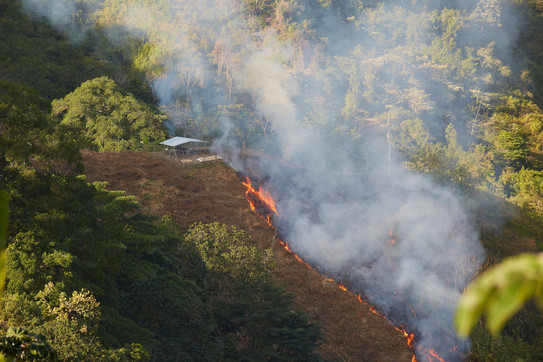
The destruction of biodiversity and the natural habitat of animals, as well as close settlements, have meant that viruses have been transmitted more and more from animal to human for decades, which has repeatedly triggered major or minor epidemics even before Corona. Climate change is also a cause of some migration movements, he says. "The issues of climate and Corona cannot be considered in isolation from other ecological crises and social, cultural, political or economic discourses," Gärtner's book says.
Many crises we have to deal with are ultimately excesses of our way of life and are interrelated. In this crisis-ridden world, Gärtner argues, one of the core tasks of religious education is to point out the complex interrelationships and to enable young people to think critically and to offer them alternatives. In this way, he said, religions fundamentally contradict the argument frequently voiced in politics and economics that there is no alternative. "Religions have a visionary, even utopian potential, in that they present narratives and hopes for a different life, a different world," says Gärtner. As early as the 1970s, therefore, it was formulated as a goal for religious education that it cannot be satisfied with the students' adaptation to the world, but should also aim "at protests against discrepancies and at changing deeds." "And that's where religious education is very close to the young people of Fridays for Future when they chant at their demos 'We are unstoppable. Another world is possible!'"
"Morality, attitude - humans don't develop that on their own"
A car advertisement in the main student union cafeteria on the TU campus spontaneously comes to mind. Pictured are young, apparently professionally successful people for whom the automobile serves as a status symbol. "Subliminal messages like that really annoy me," says Gärtner. "We need to get to other stories and moments of identification - stories about how to live in harmony with creation. Morals, attitudes - people don't develop these on their own, so we need places and spaces to exchange ideas. That can be church, but it can also be the lessons in school," she says, adding that religious education today must be a political education. In this way, Gärtner goes a step further than is usually the case in the practice of religious education, but also in everyday church life.
Of course, topics such as climate change have long since found their way into religion classes, says Prof. Claudia Gärtner. When the topic of "prophets" is discussed, the role of Greta Thunberg is also discussed: If the topic of the lesson is the preservation of creation, teachers send the class to collect trash in the school garden. When a parish festival is planned, there is of course a debate about not using plastic tableware. "In this way, these topics gain entry into religious discourse in a way that is relevant to everyday life," says Gärtner, "but a sufficiently complex treatment of the key problems, both in terms of religious education and theology, does not take place."

Sustainable - but how?
Indeed, the challenges of our time point to the streak on the horizon: sustainable action and sustainable development of the world can still save us. "Sustainable is an action, way of life, or economy that deals with 'nature' in such a way that it could be repeated or shared by anyone and everyone else everywhere and always," says Gärtner. Thus, sustainability is much more than just environmentally conscious or climate-responsive actions by each individual. The 17 Sustainable Development Goals adopted by the United Nations in 2016 therefore range from poverty reduction, access to healthcare and education for all, to gender equality and sustainable consumption, climate and water protection, and peace and justice - all around the world.
Each of these are important and correct goals in their own right - but if they are placed side by side on an equal footing, it becomes apparent that there are definitely areas of tension between them. "Prosperity for as many as possible - how does that go hand in hand with the goal of conserving resources? What does it do to water resources if I boost economic growth?" asks Gärtner. Looking at the 17 goals through an ecological lens, one arrives at different weightings and assessments than an economist. "It's important to perceive the whole and face the contradictions, the complexity of the problem," Gärtner finds - for example, in religious education.
Guiding further thinking
Now it's far easier to attend to individual impulses for action or to encourage them as a teacher. Saving water oneself is more likely to lead to individual satisfaction and suggest action competence than discussing the complex question of why multinational corporations are allowed to tap and sell drinking water. But thanks to the flexibility of the curriculum, religious education also has the chance to lead to further thinking, Gärtner believes: "We can take up topics that currently move and concern the students. Religion has always been a cross-sectional subject for questions of ethics.
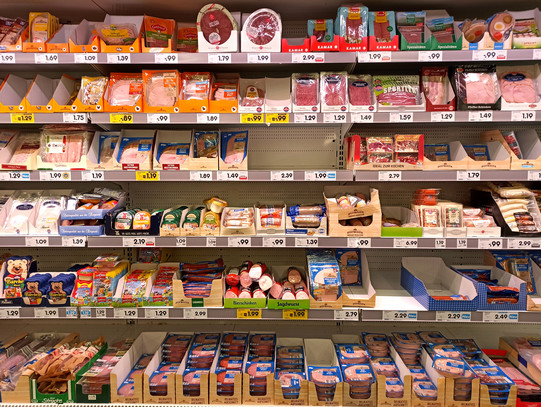
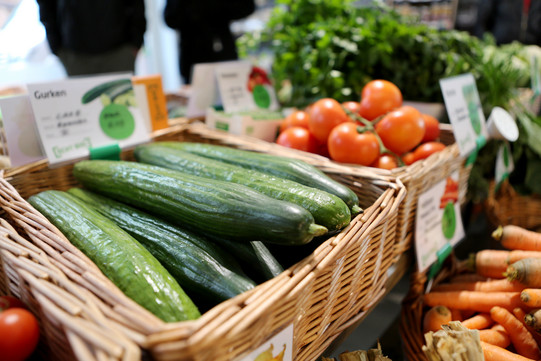
Where does the trash in the schoolyard come from? Why is it cheaper in the discount store than in the unpackaged store? How can we as a school community find models to produce less trash? I'm very keen to take such questions out of the individual level again and again and make it clear that they are in political, economic contexts," says Gärtner.
It's nice when children become experts in waste separation or saving energy in the household during their school years - "but I think it's even more important that they see through the structures. This is the only way to structure a sustainable society. It needs to be translated into political and social discourse. And that's where religion has other stories to offer." Creation theology, for example, refers to co-creativity, that is, to the interconnectedness of humans, animals and plants. Accordingly, nature is not a resource of man, but man is part of an order of creation. And such a view of the world reveals that many sustainability efforts ultimately aim to protect the world only to the extent that it continues to be available as a resource for steady growth.
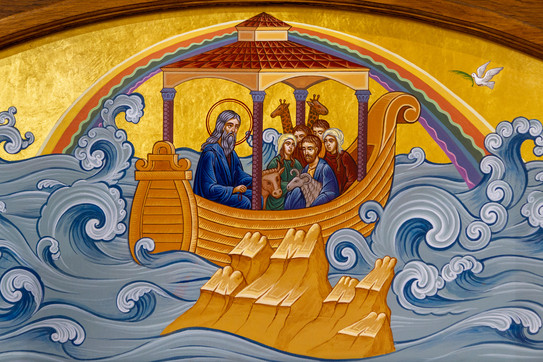
Such religious education would give religion an important social role and tell of the opportunity to help shape society. "The goal is to strengthen people to live a life in solidarity. That is an intrinsically diaconal, an interreligious concern. There is also a strong discourse about this in Islamic theology," says Prof. Claudia Gärtner.
However, sustainable development has not always been a core religious issue. For centuries, there was also a reading of the creation story according to which mankind had to subdue the earth: as ruler and crown of creation. Religious groups that take the Bible literally still propagate this in some cases. "Behind this is a mistranslation from Hebrew, the passage actually means 'to cherish the earth,'" says Gärtner, "but we have to face up to the issue, also in religious education. We also have our shadows in history and areas where religion has been and still is instrumentalized."
Text: Katrin Pinetzki
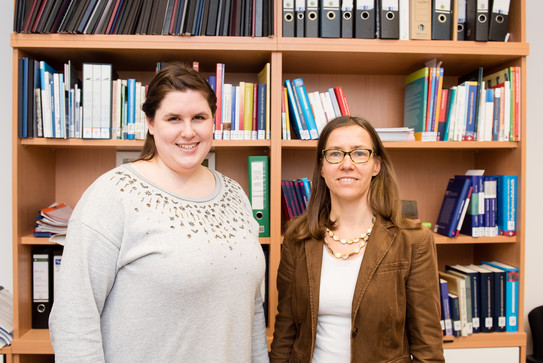
About the person
Prof. Claudia Gärtner has been teaching and researching as a professor of practical theology with a focus on religious education at TU Dortmund University since 2011. She heads the Institute for Catholic Theology and is Vice Dean for Research and Diversity at the Department of Human Sciences and Theology. Her main areas of expertise are religious education for sustainable development, aesthetic learning, subject didactic teaching and development research, dimensions of religious pedagogical-hermeneutic research and religious education in all-day schools.
She studied Catholic theology, art and education at the University of Paderborn and at the Institut Catholique/Centre Sèvres in Paris. After her doctorate in systematic theology, she worked for many years as a high school teacher. This was followed by a habilitation in religious education/didactics of systematic theology at the WWU Münster.
This is an article from mundo, the research magazine of the TU Dortmund University.

